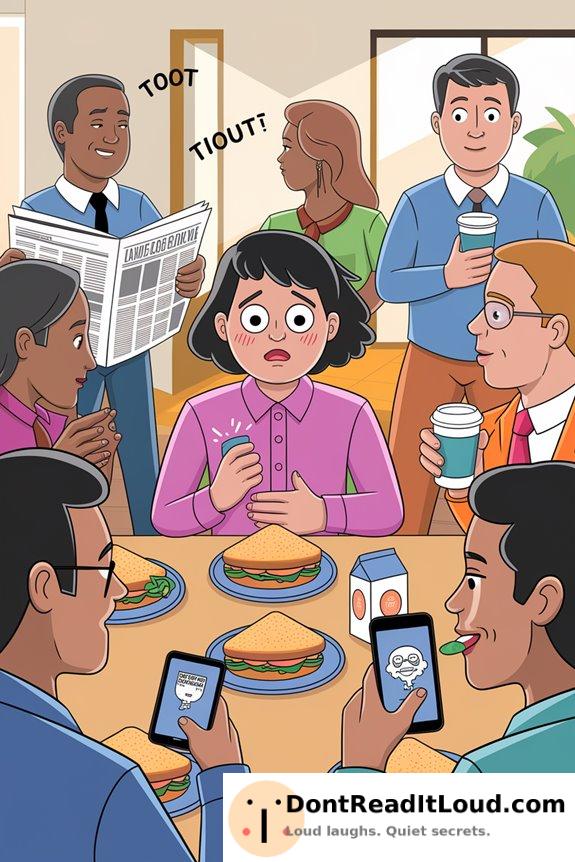
If you’re feeling unusually gassy, your diet may be to blame. Beans, broccoli, cabbage, dairy, onions, whole grains, apples, artificial sweeteners, and carbonated drinks are common culprits. These foods contain fibers, sugars, or carbonation that gut bacteria break down, producing extra gas. Adjusting your food choices or cooking methods could help reduce discomfort—stay tuned for more tips.
Beans

Although beans are packed with protein and fiber, they’re notorious for causing gas. No matter which variety you choose—black, pinto, kidney, or chickpeas—they all contain oligosaccharides, complex sugars your body struggles to digest.
As these sugars reach your gut, bacteria break them down, producing gas as a byproduct. Soaking or rinsing beans before cooking does help lower these gas-causing sugars.
Even so, beans often still cause extra flatulence. If you enjoy eating beans, expect a bit of gassiness along with their health benefits.
Broccoli

Cruciferous vegetables like broccoli are known to cause gas. When you eat broccoli, your body digests its complex sugars and fiber, which can lead to gas.
Despite this, broccoli offers excellent nutrition. It’s rich in vitamins C and K, fiber, and antioxidants that benefit your health.
If you enjoy making creative broccoli dishes, you might notice some extra bloating. Whether it’s roasted, steamed, or in a stir-fry, broccoli adds both flavor and nutrition—just be aware your digestive system may react.
Cabbage

Cabbage is well-known for causing gas. Your digestive system has trouble breaking down its fiber and raffinose, a type of complex sugar. This results in fermentation in your gut, which produces gas and leads to flatulence.
All types of cabbage—green, red, savoy, and napa—can have this effect, so the variety doesn’t matter much. Even delicious dishes like coleslaw or stir-fries won’t eliminate cabbage’s tendency to cause gas.
If you enjoy eating cabbage, you may need to put up with a bit more gas as a side effect.
Dairy Products

Many people experience extra gas after eating dairy products like milk, cheese, and ice cream.
If you notice bloating, cramps, or frequent trips to the bathroom after enjoying these foods, you might be dealing with lactose intolerance symptoms. Your body struggles to break down lactose, the sugar in dairy, leading to gas and discomfort.
Some people also find that soft or rich cheeses can cause more digestive issues and excess gas.
Everyone digests dairy differently, so try smaller amounts or lactose-free products to see if your symptoms improve.
Onions

If dairy isn’t causing your gas, onions might be the reason. Onions contain fructans, a carbohydrate that some people find difficult to digest.
Eating different types of onions—yellow, white, red, or sweet—can lead to bloating and increased gas for some. Cooking onions doesn’t always help, since the same troublesome compounds remain.
Older onions may trigger even more symptoms, so take note of how storage time affects you. To cut down on gas, try eating fewer raw onions or see which types your body handles best.
Garlic

Though garlic adds bold flavor to your meals, it can also cause extra gas. When you eat garlic, your gut bacteria break down its complex carbohydrates and sulfur compounds, which often leads to bloating and flatulence.
Still, don’t give up on garlic just because of its gassy effects—its health benefits include boosting immunity and lowering blood pressure.
To reduce gas, try roasting garlic to mellow its impact, or use just a small amount raw for strong flavor. Enjoying garlic in moderation lets you get its benefits without as much discomfort.
Whole Grains

Because whole grains are rich in fiber and complex carbohydrates, your body works harder to digest them.
When you eat foods like brown rice, oats, and whole wheat bread, much of their fiber isn’t broken down in the small intestine. Instead, these fibers reach your colon, where gut bacteria help break them down through fermentation.
This process creates gas, which can cause increased and more noticeable flatulence. Whole grains support heart health and steady energy, but a sudden increase may make you feel gassier.
Eating them in moderation can help keep you comfortable.
Apples

Apples can cause gas due to their high fiber and natural sugars, especially fructose and sorbitol.
Whether you choose Granny Smith, Fuji, or Gala, the gassy effects are usually similar. Gut bacteria break down these sugars during digestion, which increases gas.
Despite potential discomfort, apples are rich in vitamins, antioxidants, and heart-healthy fiber.
To reduce gas, try eating smaller portions or combine apples with other foods to support digestion.
Artificial Sweeteners

Many artificial sweeteners, like sorbitol, mannitol, and xylitol, can cause gas because your body doesn’t fully digest them.
When you consume foods or gum with these sweeteners, they mostly reach your colon unchanged. There, gut bacteria break them down and produce gas as a result.
These sweeteners can also affect your gut microbiome by disrupting the balance of healthy bacteria.
If you experience more bloating or flatulence after eating sugar-free products, your body may be reacting to these ingredients.
To minimize gas, read food labels and try to limit your intake of these sweeteners.
Carbonated Drinks

If you’re careful about the sweeteners in your snacks, it’s smart to think about what you drink too.
Carbonated drinks, such as soda or sparkling water, add extra gas to your digestive system. This can cause bloating and make you pass gas more often. Each sip introduces bubbles that leave your body as burps or farts.
If fizzy drinks leave you feeling gassy, you’re not the only one. To feel better, try choosing still water, herbal tea, or diluted juice instead.
Switching to these options can help your digestion and may make social situations more comfortable.
Conclusion
Now that you know which foods can make you gassy, you can plan your meals with more confidence and less worry. Everyone passes gas, and many of these foods are quite healthy. If some foods seem to cause you more trouble, consider keeping a food diary. With a few tweaks and some awareness, you can support your digestion and enjoy time with others.



